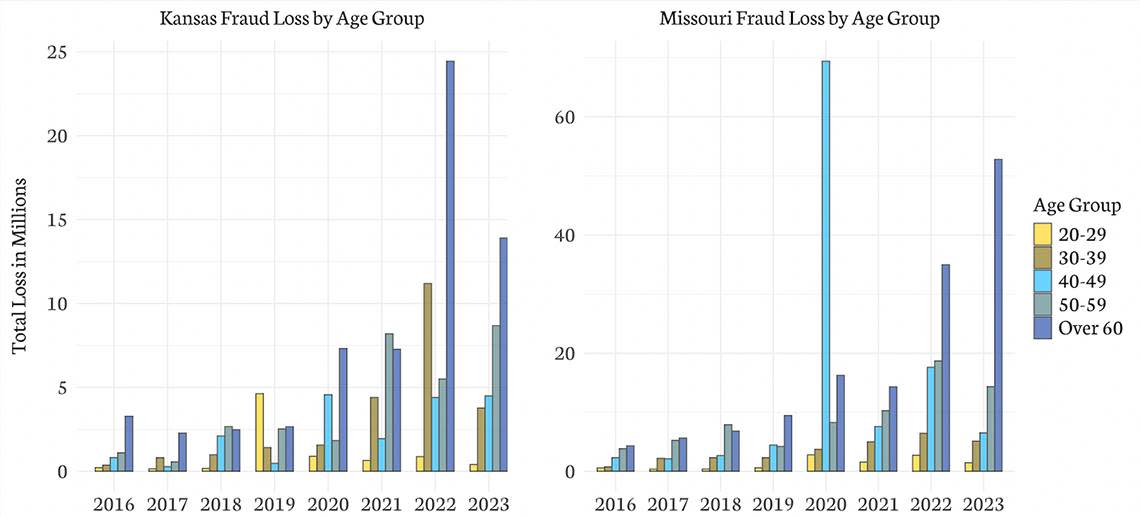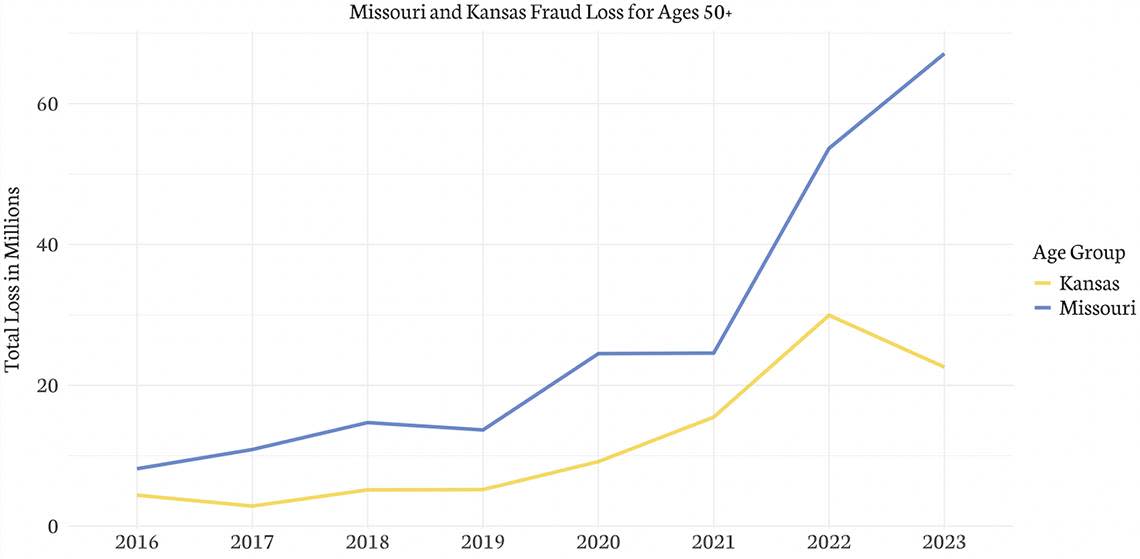Fraud is increasing. What more can Kansas and Missouri officials do to protect us? | Opinion
The dozens of texts I get every month from unknown numbers telling me my credit card bill is due, along with all the emails with supposedly unpaid invoices, never really bothered me. I see an unknown number and I ignore it. But, as I realized recently, many people are unaware of how to spot and avoid scams.
Recently, I overheard my mom on the phone with someone who claimed to be customer service for Spectrum. The person said her service was being canceled and that he could keep her connected with a significant discount — but only if she paid her ostensible outstanding bill by purchasing gift cards and giving the codes on them to him.
She knew her bill was paid, and she had never paid over the phone before. But the man on the phone knew her name and her address, which is enough for some people to trust that he was from Spectrum customer service.
Many more fraudsters and scammers just like my mom’s caller are out there, and public officials should provide more resources on how to avoid and identify scams.
In the first half of 2024, there were 22,539 fraud reports in Kansas and Missouri. But Missouri received a total of 158 more reports per every 100,000 people. These reports resulted in $85.8 million in losses, according to the Federal Trade Commission.
Kansas City saw 238 reports per 100,000, compared to the 382 and 540 for Kansas and Missouri, respectively.
Kansas City experienced mostly impostor, online shopping and job opportunity scams, consistent with Missouri and Kansas’ top fraud categories of 2024 so far.
The most vulnerable group of people are those over 50 years old in both Kansas and Missouri.

Johnson County District Attorney Steve Howe told me that he has seen a significant increase in scams in the last 10 years, especially during the COVID-19 lockdowns.
Before Howe took office in 2008, he specialized in elder abuse cases and financial scams as assistant district attorney.
“You’ll see an email posing as either a nephew or son or daughter: ‘I’ve been arrested. I need you to send money. Send it through a Bitcoin account,’” Howe said. “And people will send thousands of dollars.”
He said the increase after COVID-19 was because people were isolated and online.

‘Younger generations are beginning to fall victim’
Growing technology and communication makes fraud an increased threat. We need to protect people by properly publicizing how to report fraud, and by giving them tips to avoid them in the first place.
Clay County Prosecutor Zach Thompson said that since fraud in his county stems from online communications, young people and older adults are struggling to avoid scams.
“Likely due to the amount of time spent online, younger generations are beginning to fall victim to online scams at higher rates than older generations,” Thompson said in an email.
Kansas City, as well as Jackson, Johnson and Clay counties, all have resources and presentations on their websites on how to deal with scams. This fall, Thompson will present his scam education initiative Citizen Education Against Scams and Exploitation or C.E.A.S.E. at Clay County public libraries.
In Johnson County, Howe educates residents of assisted living facilities. Both Howe and Thompson want to destigmatize the idea that being a victim of fraud is embarrassing, and do so through their presentations, which can be requested by organizations.
“Consumers really need to just swallow their pride and realize that millions of Americans have been taken advantage of through some form of identity theft, and that it’s important to notify law enforcement immediately,” Howe said.
Howe said older adults wait to report fraud because they are afraid their families will not trust them to manage their own money. But waiting to report increases the chances that money will disappear, making it nearly impossible for law enforcement to track it.
We need law enforcement and public officials to be more aggressive when looking at fraud cases. And since technology and scams are becoming more advanced, the public should have sufficient information on how to identify, report and prevent fraud before it happens.
